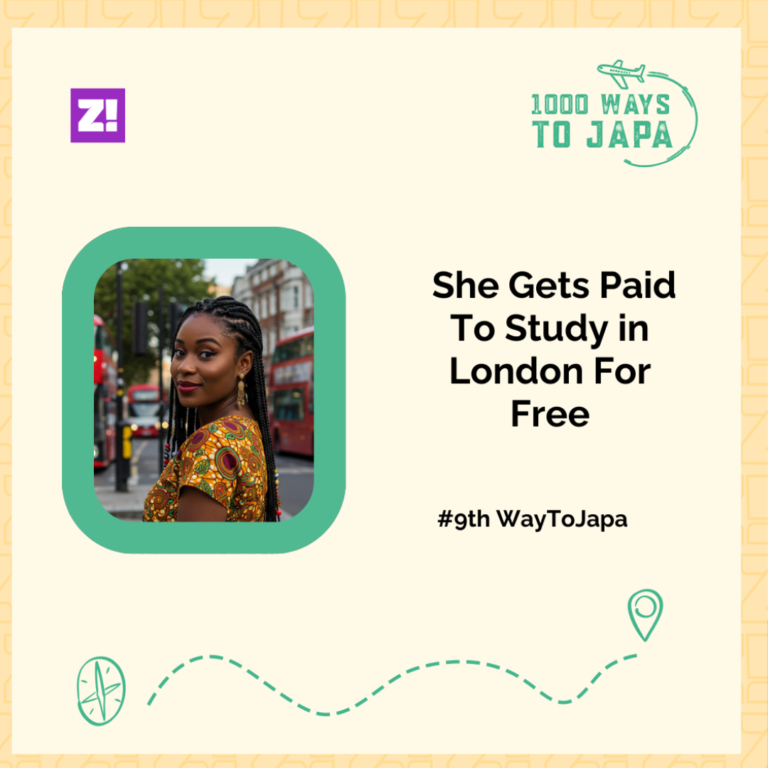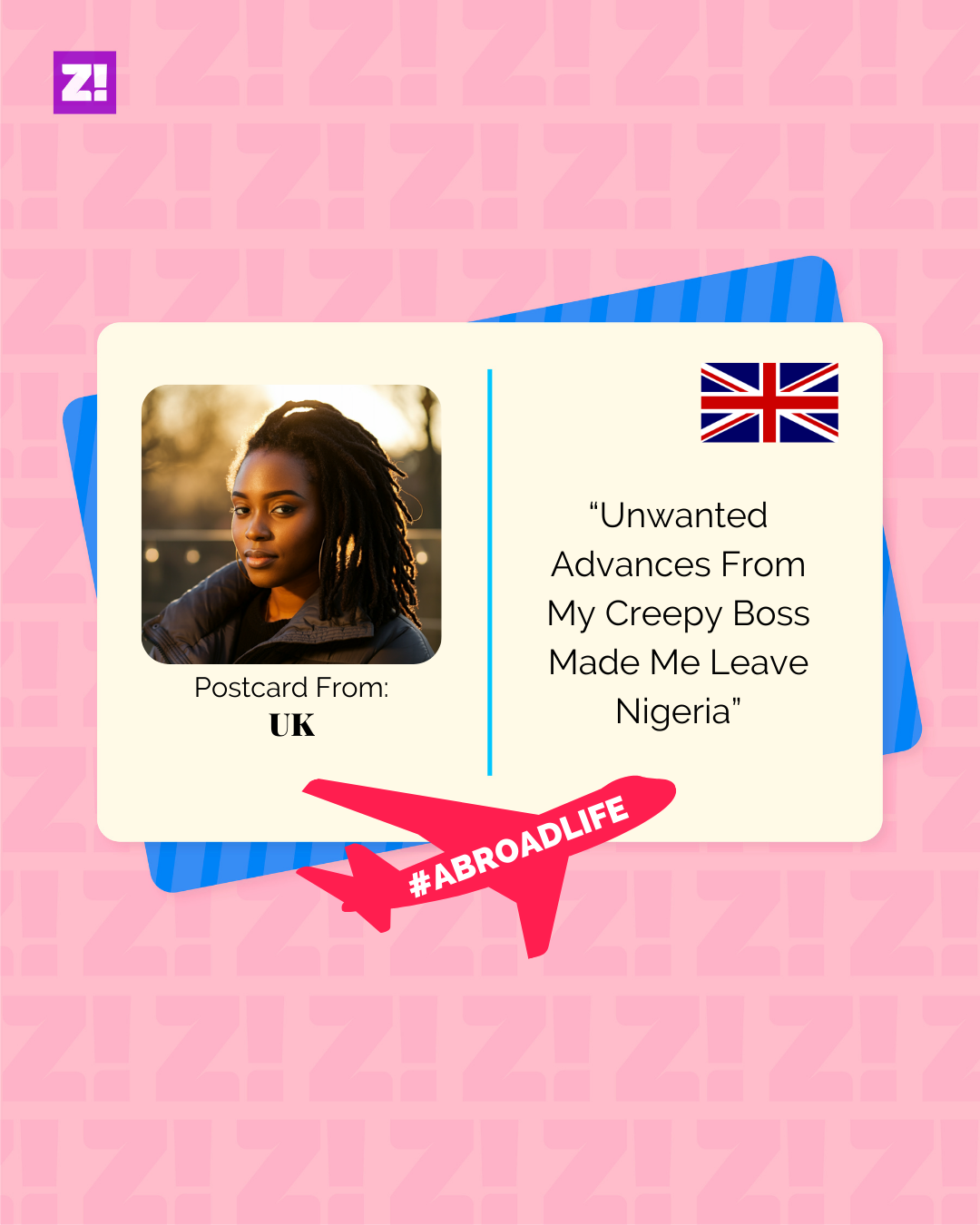Someone you know has left or is planning to leave. 1,000 Ways To Japa will speak to real people and explore the infinite number of reasons and paths they use to get to Japa.
Since secondary school, this 25-year-old marketing bro has wondered what life in a functional country feels like. Now, he’s living his dreams through the UK Global Talent visa and thinks other Nigerians should jump on the opportunity too.
Where do you live, and when did you move out of Nigeria?
I live in Kent, UK, and I moved here in August 2024 through a global talent visa.
Sounds fancy. What’s a global talent visa?
The global talent visa is for people with at least two years of experience in their field, particularly tech, arts, or academia. I work as a marketing professional in the digital technology sector, so I applied for the visa through Tech Nation.
We’ll come back to that. When did you decide to leave Nigeria, and why?
I don’t know if there’s a specific date for that. The reality that comes with being a Nigerian is that you always want to leave. It’s always been on my mind, but it became a conscious decision when I finished secondary school. I don’t know if it’s still functional now, but a couple of my seniors in secondary school then had travelled to Russia through the Federal Government Scholarship Board. They painted a picture of a different life for me, so I decided that it would be nice to relate.
Do you feel like you can relate now?
I didn’t hold the UK to any unrealistic standard before I moved, and that’s because when you’re coming from a very difficult place, your expectation is, “I just hope this other country is better.” Thankfully, there’s more peace and stability here.
Is there anything about the UK that caught you off-guard?
I think the first thing would be the value of money, the fact that money actually has value in the UK. It’s surprising that you can buy something for like £9 or £5 here when you can’t even find ₦5 in Nigeria anymore. The fact that transportation is also affordable is shocking – I hear it’s cheaper in other parts of Europe anyway. When I was about to move to the UK, I remember complaining to a friend about how I would deal with transportation costs in my first few days– I was travelling from London to Oxford for a job interview and then to Kent, so I assumed I would spend a lot. She told me not to worry because I would not need up to £100 to cover all the train and bus rides. The value of the currency itself gives you peace of mind. You’re not consciously looking for some dollar-to-naira conversion app to fix non-existent problems.
This is also my first time experiencing what a functioning government looks like. The fact that you send an email to your council – like local government – and they actually get back to you surprises me. Things just function the way they’re supposed to, and even though you’ve not experienced it before, you feel like this is what a proper life should look like.
LMAO. Why are you even sending emails to your Local government?
You won’t see the need because you don’t even think your local government should be emailed in Nigeria. So, there was a day that I went to the library, and it was closed, I saw a sign with a number and email to contact for more information. I sent an email, and I got a response in two hours, explaining why the library was closed and sending me a schedule of their weekly and monthly opening days. These little things don’t usually work in Nigeria;the email would probably sit in a forgotten inbox, or the number would be unreachable. When you’re in a country where things work, trust me, you’ll definitely have things to tell your local government.
Sounds like life in the UK is great. Made new friends yet?
I’m an introvert, but I guess I’m lucky to have friends who relocated to the UK before me, so friendship hasn’t been a problem.
Good for you. Let’s talk more about relocation. How would you advise japa aspirants to prepare for the global talent visa?
There’s a short version and a long version, which one do you want?
Both, but let’s start with the short version.
If you’re interested in the visa, start by putting together documents that show your experience—what you’ve done, the impact of your work, how recognised you are, and how your work stands out in your field. Submit these to Tech Nation; If they endorse you, you can go ahead to apply for the Global Talent visa. After that, you wait for the UK’s decision—usually a “yes” from what I’ve read. Once approved, you’re set to travel.
The Tech Nation website has everything you need to know about the Global Talent Visa, including clear, easy-to-understand guidelines.
So what’s the long version?
First, get at least two years of experience in tech in a product-led company, not an agency. There are two categories for this visa: “Exceptional Promise” and “Exceptional Talent.” Exceptional promise recipients are people who have less than five years of experience, while exceptional talent recipients are those who have five years or more.
If you’re a product designer, for example, focus on building a strong portfolio, staying active in your field, and contributing to tech communities through something like volunteering. This kind of involvement will help prepare you for the visa. You can also check the UK government website to see exactly how they define global talent, but I’d tell you that the summary of what they want is a track record of impressive, verifiable work.
How do you actually apply for this visa?
To apply, put together a solid CV and a Personal Statement that covers who you are, what you do, why you want to move to the UK, and your plans once you’re there. You’ll also need to submit up to 10 documents (pieces of evidence) showing your impact. This means you have to show off any innovative work you’ve done and any leadership roles you’ve held. This could include records of speaking engagements or any other proof of leadership.
Throughout the application process, just work with the consciousness that you’re trying to convince people who don’t know you that you’re a recognised talent in your country with the potential to become even better. Also, show how your skills could benefit the UK because that’s the whole point of getting the visa.
How much did you pay for the visa?
The visa is not the first thing anyone who wants to get the Global Talent visa should be worried about. The endorsement comes first, but when you’re in the planning stage, your initial budget should be around £716 (about ₦1.5 million) for both the endorsement and visa.
Here’s how it works: you’ll first pay £524 for the endorsement application. If you’re approved, you can then apply for the visa, which costs £192. That’s where your first £716 budget is going. After you’ve sorted out payments for your endorsement and visa, you’ll have to pay a healthcare surcharge which costs £1,035 per year. So, it starts with the endorsement application and the visa fee, and if successful, the healthcare charge comes in.
What else do people need to know about this visa?
Alright, so here’s how it goes: if you’re classified as an “exceptional talent” (this means you have five or more years of experience), you get a two-year visa in the UK. After those two years, you can apply to remain in the UK for another year, summing it up to three. At the end of those three years, you will be eligible to get your permanent residence.
On the other hand, if you’re an “exceptional promise” (this means you have less than five years in your career), you’ll get a five-year visa. You can move in and out of the UK freely as long as you stay for at least six months each year. At the end of your five years, you’ll apply to remain in the UK for another year, and after spending six years in the UK, you should be ready to apply for your British citizenship. So, the difference between the two categories is really in how quickly you can become a British citizen—exceptional promise candidates have a longer wait time.
Another thing people need to know is that while the endorsement fee and the healthcare surcharge (£1,035) are both part of an initial cost, the healthcare surcharge can be paid upfront or gradually. So, let’s say you qualify for a five-year visa as an exceptional promise; you could choose to pay for only one year upfront, get your visa, and leave Nigeria, then make your payment once every year once you get to the UK and find a good job. If you prefer, you could still clear the payment at once to avoid the stress of renewals.
What happens to your money if you don’t get the endorsement?
Nothing happens. The money goes. You still have to pay if you’re applying again.
Oh wow
Your application for endorsement can be rejected, but if that happens, they will explain why they’ve rejected you. If you think they are wrong, you can appeal that rejection and tell them why you think their decision is wrong. They can revoke the rejection and endorse you if you have solid points or maintain the rejection and give you feedback that can be useful for your next application.
But they won’t return your money?
Nobody is returning your money. It’s just like paying to apply to a school and expecting a refund because they rejected you. That’s why it’s important to make sure you meet the requirements and your application is as solid as possible.
So how long does it typically take to get a global talent visa?
Honestly, if you’re looking to apply for the Global Talent visa, I’d say the whole process—gathering documents and everything—will likely take three to six months.
On a scale of 1-10, how much would you recommend the global talent visa to young professionals?
If you’re a Nigerian working in tech, I would recommend it 100%. The reasons are self-evident, really. The country doesn’t seem to be getting any better, and as a tech professional, being in a stable country where you don’t have to miss out on opportunities because you’re living in Nigeria is definitely something to embrace.
Enjoyed reading this? Click here to be the first to know when a new episode of 1,000 Ways to Japa drops. If you want to share your story, please reach out to me here.




